Profile
Dr Anabah, agent of change in the health sector
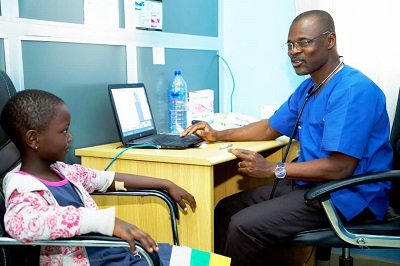
Dr Thomas Winsum Anabah is a professional medical doctor whose specialties include critical care, emergency medicine and anaesthesiology. He is among the few medical doctors with such specialties.
He is experienced in Health Management with practical approach to problem solving and has a knack for “see things through” to a successful completion.
Challenges in his early years could not kill his vision of becoming a health practitioner and he has over the years continued to contribute effectively to providing quality service in the health sector.
The Spectator caught up with him recently to delve into his professional and personal life.
Background
Dr Anabah hails from a town called Garu, in the Worikambo Electoral Area in the Upper East Region.
The talented medical doctor has six siblings, from the late Joseph Anabah and Mrs Veronica Anabah.
Dr Anabah speaks English, Spanish, Italian, Kusaal, Hausa and Twi and is married with two children.
Education
Having an indefatigable father who occupied portfolios of a teacher and politician, Dr Anabah had his primary school education in a haphazard manner.
He went to Nalerigu Primary School and later attended Worikambo Primary School and later moved to Bawku Primary School which is also known as Wenamzua Primary School from where he later moved again to Worikambo to attend middle school.
Dr Anabah’s middle school education was not a “straight” one as he moved back and forth from Worikambo and Winanzua middle schools and later proceeded to Bawku Secondary School until he got a scholarship in 1988 to study in Cuba.
From 1988 to 1992, Dr Anabah obtained a Junior High School Diploma from the Kwame Nkrumah Memorial School at Isle of Youth in Cuba, where he was the Senior Prefect and continued his High School education at the Andrei Grechko Senior High School, also at the Isle of Youth, Cuba from 1992 to 1993.
While in the High School, everybody thought Dr Anabah would read Cybernetics because he was a genius at Mathematics, Physics and Chemistry but he rather pursued his dream of becoming a medical doctor.
Attaining a higher feat and making his dream come true, Dr Anabah further attended Higher Institute of Medical Sciences at Santa Clara, Cuba where he studied Medicine from 1995 to 2001.
He was one of the best graduates in the entire university and was also the Best Foreign Student, who took awards in sports, culture among others.
Adding to his educational laurels, the never-say-never doctor enrolled at the Higher Institute of Medical Sciences in Havana, Cuba where he did his Specialist Anaesthesiology and Resuscitation from 2003 to 2007.
He again obtained a Masters in Critical Care and Emergencies from La Sapienza, University of Rome in Italy, from 2008 to 2009.
Professional Experiences
Dr Thomas Winsum Anabah rose through the ranks to become a force to reckon with in the medical field.
He began his clinical attachment at the Korle-Bu Teaching Hospital in October 2001 to January 2002 and then became a House Officer there from March 2002 to February 2003.
This hardworking and ambitious health professional later became a Medical Officer from March to October 2003 at the same Hospital.
He served as a Specialist Anaesthesiologist and Resuscitation at the Ridge Hospital, Accra between 2007 and 2008, after which he became a Consultant Anaesthesiologist cum Head of Department Anaesthesia and Critical Care at the same hospital, from 2009 to 2012.
Dr Anabah has been a United Nations Examining Physician since 2013 to date for the world body.
He was the Medical Director of Accra Regional Hospital (Ridge), Accra from February 2016 to May 2017 where he gave the hospital a tremendous facelift.
Dr Anabah has been the C.E.O of Habana Medical Service, Tamale since June 2017 to date and is also the Executive Director of African Centre for Health Policy Research and Analysis (ACH-PRA) from January 2018 to date.
Achievements
Having a keen interest in the development of health systems in Ghana, Dr Anabah has put up a sterling performance in contributing his quota towards quality health delivery in the nation.
He successfully developed and established a Critical Care Unit at the Tamale Teaching Hospital and also secured a grant from Rotary International to establish an Obstetric High Depended Unit at the Tamale Teaching Hospital.
He again developed the first ever BSc Nurse Anaesthesia Programme in Africa and the programme is being rolled out at the University for Development Studies, Tamale, since 2001.
According to him, the programme has come to resolve a huge national problem by creating a clear career pathway for nurse anaesthetists in Ghana who hitherto had no opportunity for career progression in the specialty.
Dr Anabah told The Spectator that he had established and managed a private hospital called “Habana Medical Service” at Tamale which has received several awards both locally and internationally for the quality of care and management style.
“I was celebrated as a Humanitarian Hero by LifeBox Foundation, 2015 in the United Kingdom for my contribution in the development of anaesthesia in the world,” he boldly and happily stated.
He has established and funded a health facility policy think-tank; Africa Centre for Health Policy Research and Analysis (ACH-PRA), headquartered at Tamale.
Hobbies and Interests
The banku and okro soup lover likes reading, gardening, public speaking and sports and is a Rotarian, currently the Rotary Foundation Chair of the Tamale Rotary Club.
By Alfred Nii Arday Ankrah
Profile
Edwina Anokye-Bempah Redefining Trust in Ghana’s Real Estate Landscape
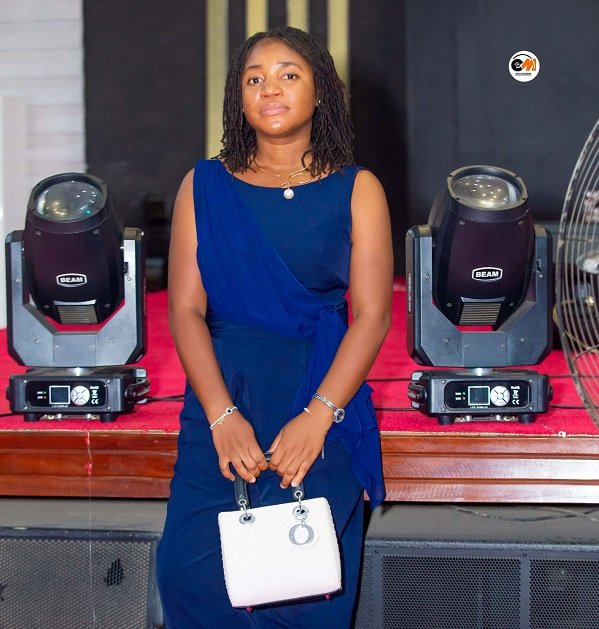
Every morning begins the same way for Edwina Anokye-Bempah, with quiet devotion. It is her grounding ritual, a moment of reflection and gratitude before she steps into the dynamic, often unpredictable world of real estate brokerage.
By the time she arrives at the office, she has already set the tone for her day. She reviews the previous day’s tasks, checks what was accomplished and what still needs attention, and then drafts a new to-do list. For her, success is rooted in deliberate planning, discipline, and the commitment to follow through.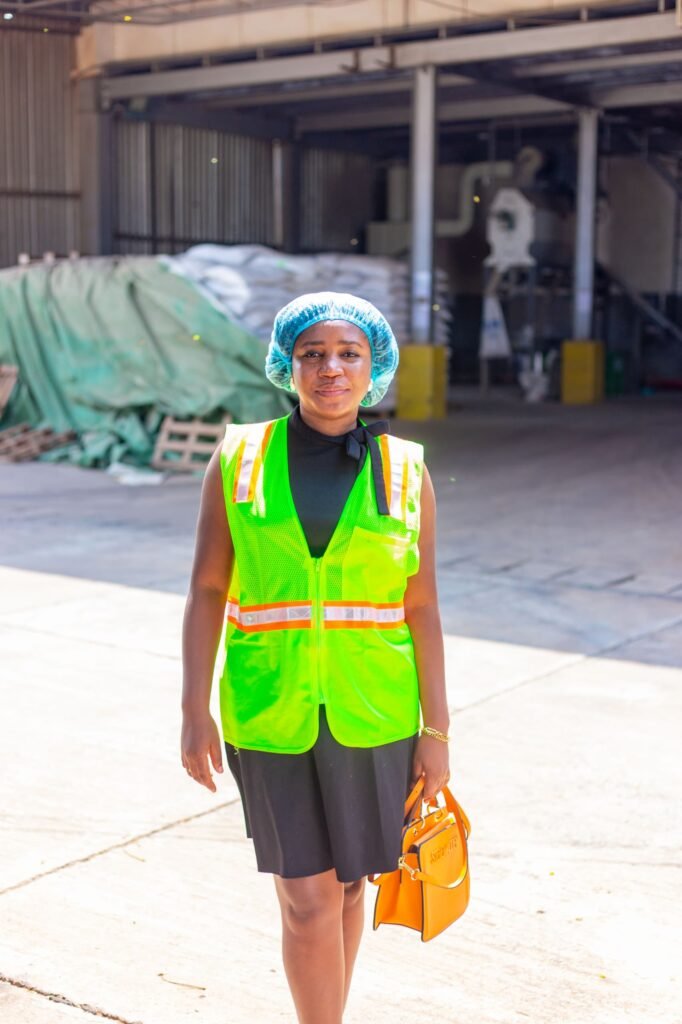
Today, Edwina stands out as one of Ghana’s promising real estate brokers, but she is also clear about the distinctions within her field. While many people casually use the term ‘realtor,’ she is quick to explain that only professionals registered with the National Association of Realtors can claim that title.
“Since I am not registered with the association, I am a real estate broker,” she says. It is a role she embraces wholeheartedly, facilitating transactions, connecting buyers and sellers, and ensuring clarity and integrity at every step.
Her journey into the industry took shape at MeQasa, an online platform dedicated solely to real estate. The platform exposed her to developers, agents, and the complexities of property transactions. She worked closely with developers and observed one recurring problem: clients often complained about agents who failed to respond, follow up, or provide accurate information.
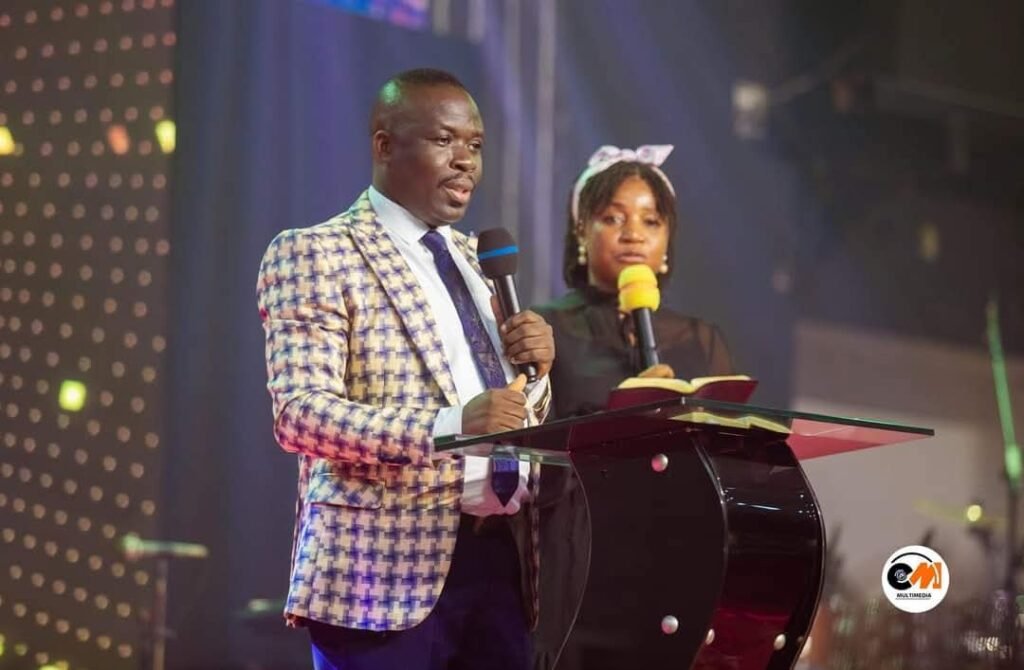
With her background in sales and marketing, Edwina felt naturally drawn to the field. It was an industry where she believed she could make a meaningful, positive impact. Real estate, she came to learn, is far more than brick and mortar. It is about helping people secure one of the most important investments of their lives. This understanding shapes every decision she makes.
One of the most challenging tasks in her work is qualifying clients.
“A serious buyer must be willing, ready and able,” she explains. When one of these three qualities is missing, the transaction is likely to stall or collapse entirely.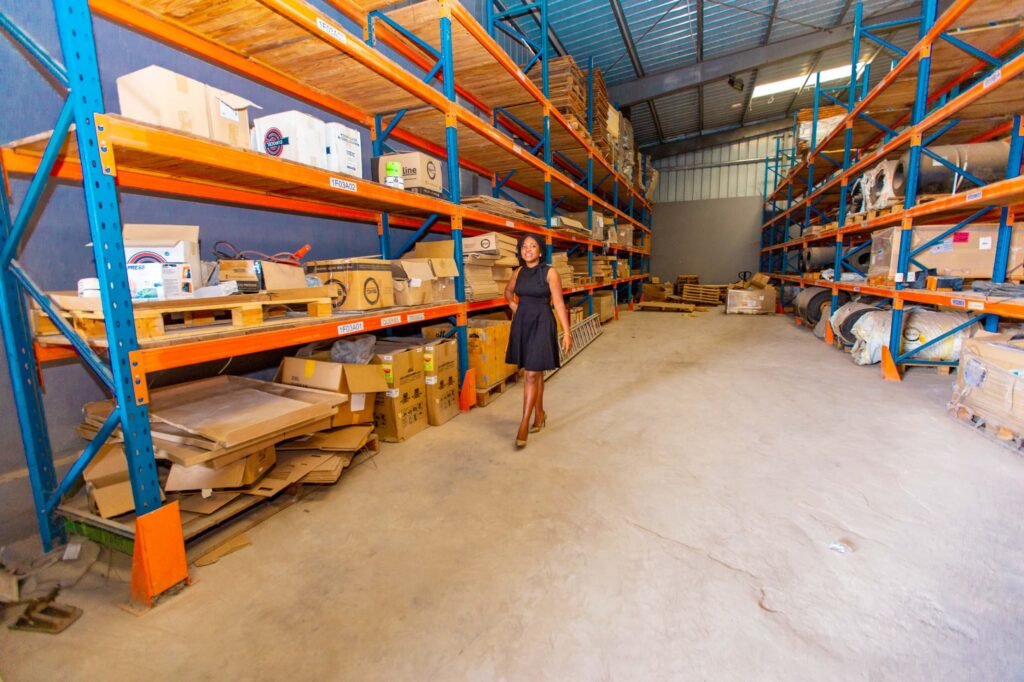
On the seller’s side, due diligence is equally critical. Ownership disputes, land fraud, and unclear documentation remain some of the biggest risks in Ghana’s real estate sector.
Edwina understands the weight of the responsibility she carries. “The money involved is huge. These are people’s lifetime savings. Most people buy one home or maybe two in their entire lives. You cannot afford to make a mistake.”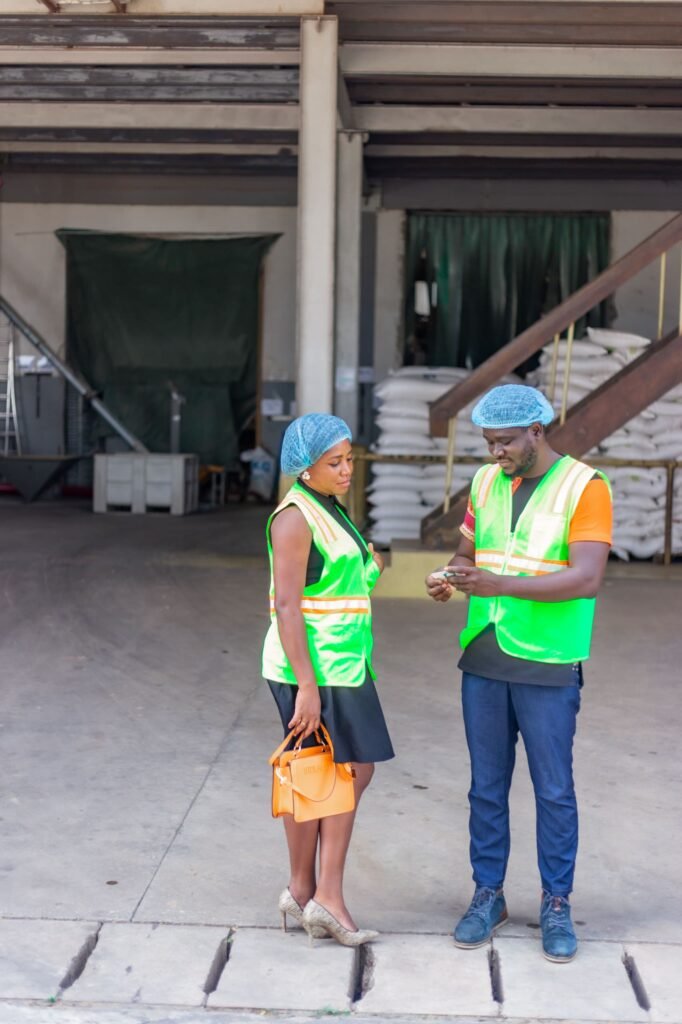
Working in what many describe as a male-dominated field has never intimidated her. With an MBA in Marketing and extensive experience in sales roles including a stint as an Account Manager in an advertising agency, she has grown comfortable handling clients, negotiating deals, and presenting herself with confidence.
“My gender has never discouraged me,” she says. “What matters is hard work and ensuring that the client’s needs were met.”
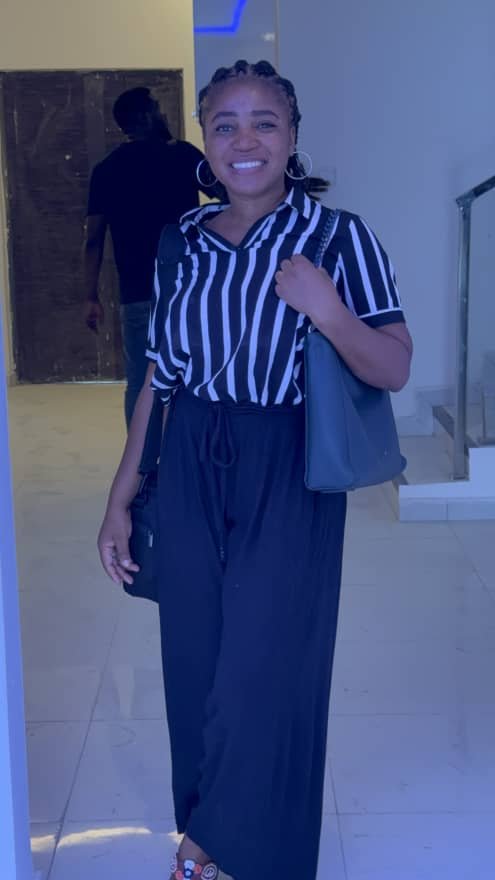
The only occasional challenge, she admits, was maintaining professional boundaries when some men attempt to be overly familiar. Her solution is simple: stay professional and do not over-familiarise yourself with clients.
Her educational journey started in Kumasi, followed by Yaa Asantewaa Girls’ Senior High School, where she studied Agricultural Science. She continued the same at the University of Ghana before pursuing her master’s degree. After university, she worked on her uncle’s poultry farm before moving into advertising. Later, her role at MeQasa finally opened the door to the career she had long been unknowingly preparing for.
Over the years, Edwina has built a reputation not only for competence but also for care. She recalls one client in particular, an older man relocating to Ghana with no family in the country. After helping him secure two homes, she became the closest person he could rely on. One evening at around 8 p.m., he called to say he felt unwell. Without hesitation, she drove to his home and rushed him to the hospital. Doctors later told her that any delay could have been fatal.
For Edwina, that moment affirmed that the job goes far beyond selling property. “It doesn’t end with the sale,” she says. “You have to look out for people.”
Her influence also extends to younger people observing her journey. She is known for her tenacity, her refusal to give up on clients or tasks, and her resilience in the face of challenges. Those who work around her learn to push forward regardless of setbacks.
“If a deal doesn’t go as expected, you don’t look back. You find a way.”
Beyond real estate, Edwina serves as an interpreter in her church, a role that dramatically boosted her confidence. What began with trembling legs has evolved into a boldness that reflects in her public speaking and client interactions. She credits her growth to God, her senior pastor, her mother, siblings, friends, and her dedicated team — “an amazing circle,” she calls them.
Today, she is also a partner in a showroom business dealing in vanity units, sanitary wares, and tiles, an extension of her real estate insight and experience.
For young people aspiring to join the industry, her advice is clear: “Learn the industry beyond selling. Understand transactions, build strong relationships, and always do your due diligence.”
For Edwina Anokye-Bempah, real estate is more than business; it is trust, service, and impact, one client at a time.
By Esinam Jemima Kuatsinu
Join our WhatsApp Channel now!
https://whatsapp.com/channel/0029VbBElzjInlqHhl1aTU27
Profile
How a Collapsed Dream Birthed Another: Daniel Debrah’s Music Journey

From the age of five, Daniel Nana Kwesi Kakra Debrah has lived a life surrounded by rhythm, harmony, and the quiet pulse of music. Growing up in a home where instruments filled corners and rehearsals were as normal as conversation, Daniel’s first teachers were not in formal classrooms—they were the sounds, movements, and discipline he absorbed from his father, a committed church musician.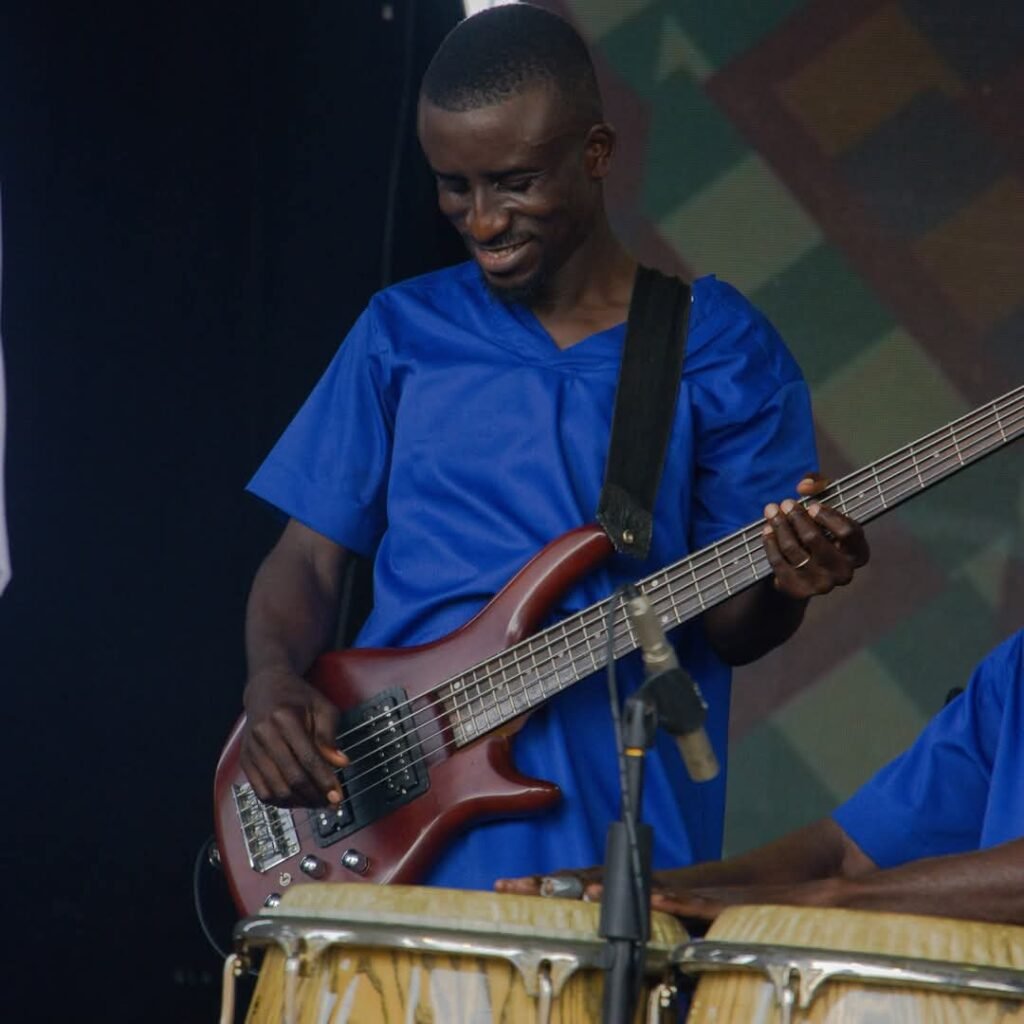
Ironically, music was not Daniel’s first dream. Like many young boys, he once hoped to become a professional footballer. But an injury from a school match left him unable to walk for three months, forcing him to retire that ambition. What seemed like a tragedy at the time became the turning point that aligned him with the path he was always meant to follow.
Daniel’s earliest musical expression began in church. As a boy in Sunday School, he eagerly ‘pounded’ the drums, quickly becoming known as the child who never missed an opportunity to play. Even in Senior High School (SHS), although many of his classmates were unaware of his talent, he continued practising quietly until completing school in 2005.
After SHS, Daniel joined a church music class with the intention of growing as a drummer, but one moment changed everything. Watching a bass guitarist perform stirred something in him. Drawn to the deep, steady tones of the bass, he persuaded a friend to teach him the basics. With no instrument of his own, Daniel practised at home using a broken guitar for more than eight months.
Then destiny intervened. The church’s lead bassist was suddenly suspended, and Daniel stepped in voluntarily during an evening service. That temporary voluntary act became permanent as he was asked by the then Music Director to fill in the gap. From that point, he embraced the bass guitar fully—a decision that defined the rest of his life.
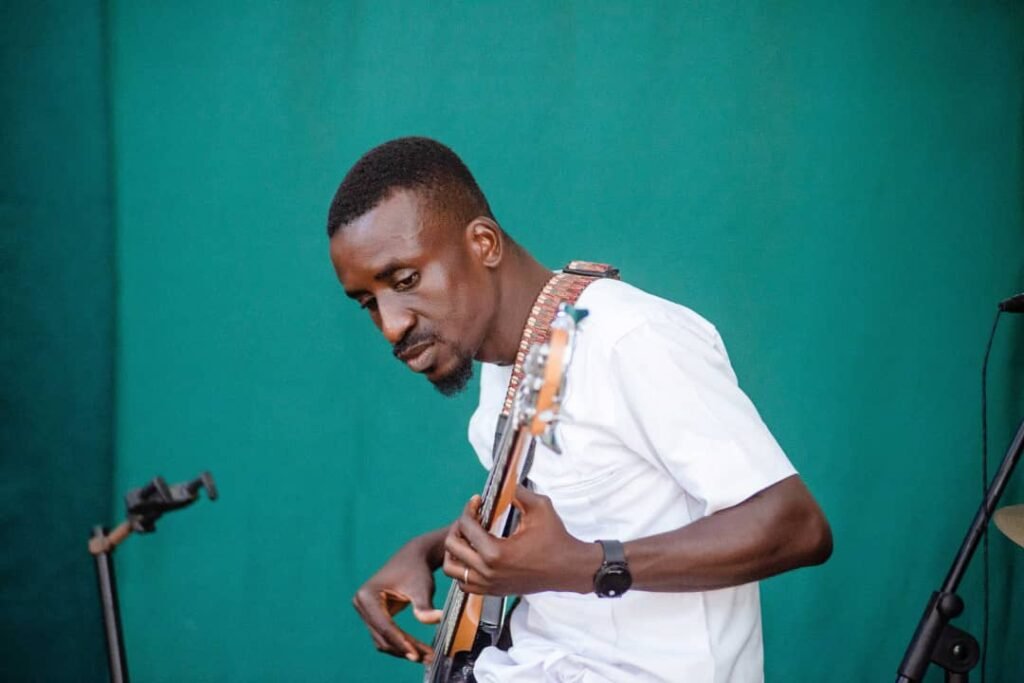
Around 2006, Daniel made a life-changing decision to take his craft seriously. He began practising for hours on end, sometimes up to eight hours a day, often without food, locked away from family and friends, perfecting techniques and expanding his creativity. While others assumed he was outdoors socialising, Daniel was indoors sharpening his gift.
His breakthrough came in 2007 when he performed in the TV3 Bands Alive competition. The exposure, applause, and feedback confirmed his dream: “music was not just a passion; it was his calling,” he said.
With time, Daniel moved confidently into the professional space. He performed at studio sessions, live concerts, weddings, church events, and high-profile national programmes. His talent, discipline, and reliability earned him a reputation that continues to attract respected gospel artistes.
Today, he works closely with Daughters of Glorious Jesus, Chris Apau, and Israel Ofori, who have been of immense help to his career ministry. He also collaborates with several ministries and offers support with musical arrangements, live performances, and studio recordings.
Beyond the stage, Daniel sees himself as a mentor. Many young musicians reach out to him, some visiting in person, others calling for guidance. Whether through hands-on training or virtual coaching, he is always ready to teach. For Daniel, music is not just technique; it is character, discipline, and values. He believes a musician must carry integrity both on and off stage.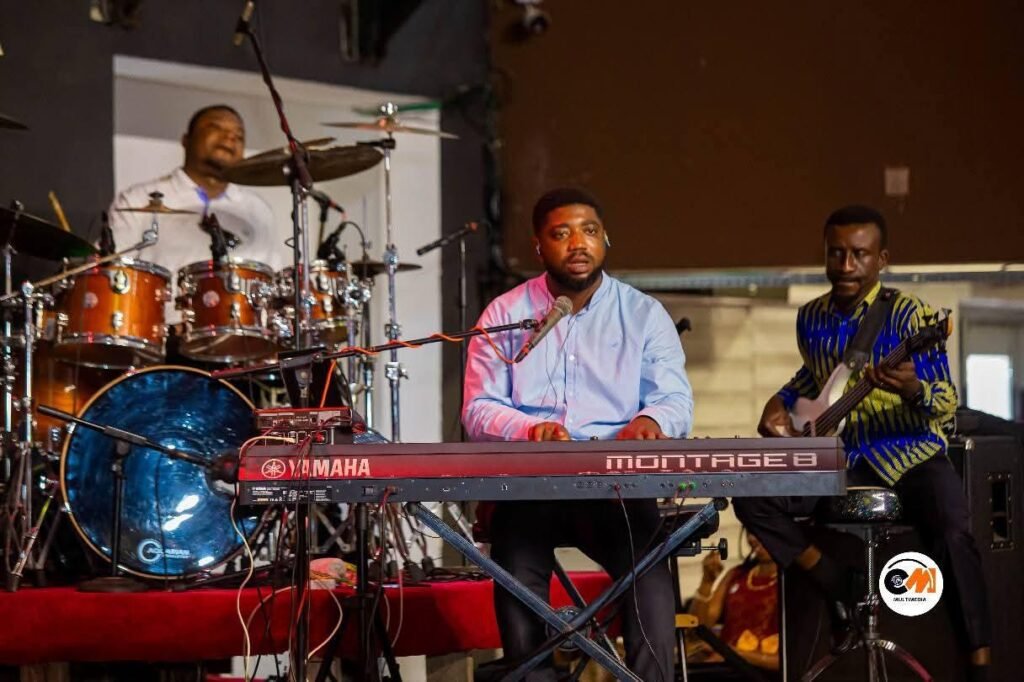
Like many musicians in Ghana, Daniel has faced challenges with delayed payments and broken agreements. These experiences have taught him to value professionalism. He now insists on part payment upfront and charges more for his services, a decision grounded in self-respect and fairness.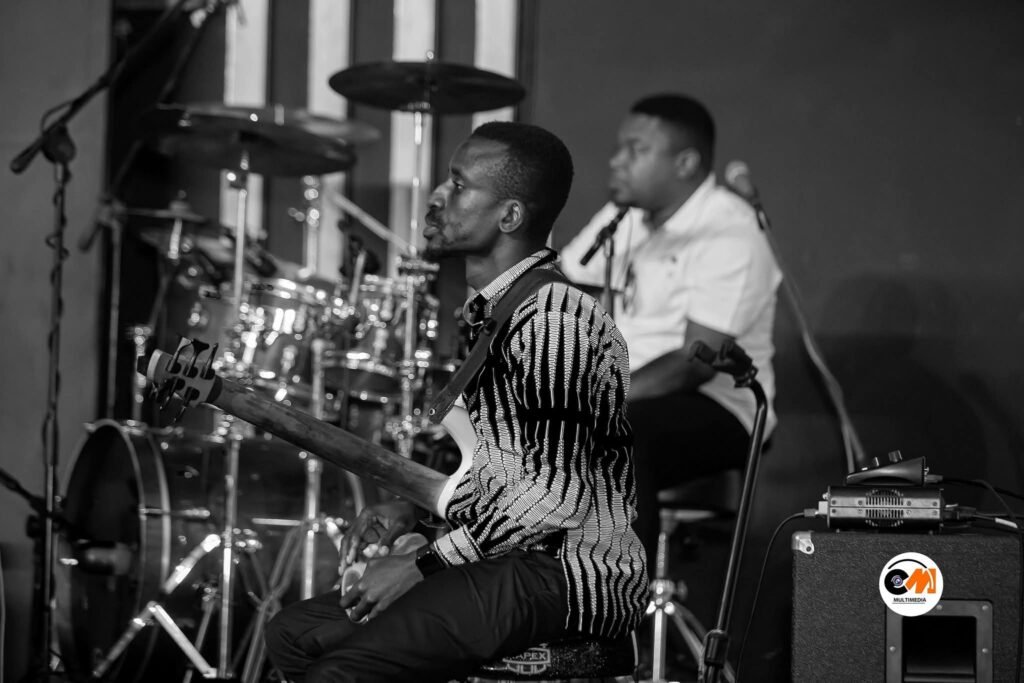
Daniel’s journey in music has been shaped by various individuals who have supported him at different stages of his career. He acknowledged Opoku Agyeman Sanaa, Kofi Ennin, Andrew Klu, Mr. Samuel Abbey, Mr. Samuel Sarpong Agyei, Paul Quartey, Mr. Nene Emmanuel, and Mr. Isaac Asiedu, saying that their belief in him continues to inspire his journey.
Daniel’s work is guided by his Christian faith. He sees music as ministry, not merely entertainment. Off stage, he is a devoted family man—a husband and father of two, a boy and a girl, who have also started playing musical instruments. During his leisure time, he listens to music, or plays football and action video games.
Through his acts of service and unwavering determination, Daniel continues to inspire others, proving that when passion meets integrity, ordinary men impact the lives of others.
By Esinam Jemima Kuatsinu







